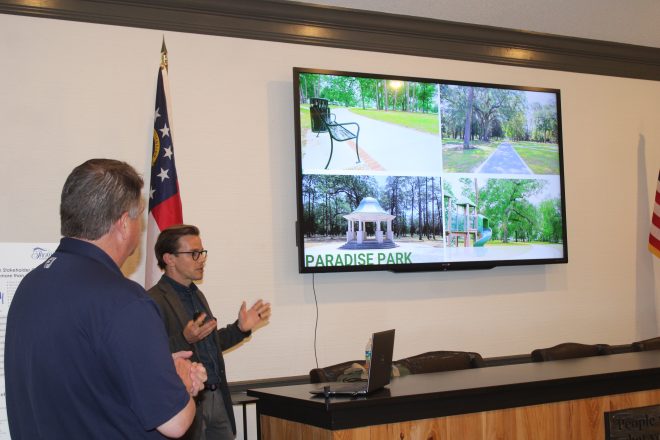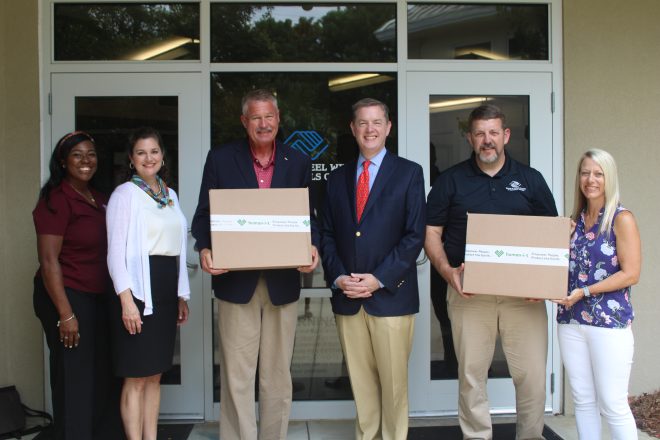When the weather turns bad, don’t take chances out on the road
Published 10:35 am Tuesday, February 8, 2022
There’s no time like the present to get ready for severe weather — because in southwest Georgia, severe weather always seems to be just around the corner.
This week is Severe Weather Preparedness Week in Georgia.
Gov. Brian Kemp, in coordination with the Georgia Emergency Management and Homeland Security Agency and the National Weather Service, has called upon all Georgians to educate themselves on severe weather threats.
“Georgia has seen severe weather happen at any time of the year,” said Georgia Emergency Management Agency/Homeland Security Director Chris Stallings. “We always want our citizens to be well prepared before any type of weather event strikes, so they have ample time to review or change their plan of action if needed.”
One of the biggest dangers is driving in heavy rain. AAA advises using extreme caution when driving in heavy rains and staying off the road if at all possible.
But if you have to go out when the rain turns down incessant downpours, AAA offers tips on how to drive safely in those conditions.
• Pack an emergency kit in your vehicle, which includes a flashlight with extra batteries; a first-aid kit; drinking water; mobile phone and car charger; extra snacks/food for your travelers and any pets; battery booster cables; and emergency flares or reflectors.
• Have a full tank of gas.
• Always wear your seat belt.
• Rainy conditions can cause low visibility: Turn on your headlights to help you see better and to allow other motorists to spot you better. Avoid using your high beams because you could blind other drivers and the extra light will reflect off the rain, causing more of a distraction for you.
• If you can’t see the edges of the road or other vehicles at a safe distance while driving during wet weather, pull of the road as far as you can and wait for the rain to ease up. Make sure to turn on emergency flashers to alert other drivers.
• Avoid standing water and flooded roads at all times. There is no way to tell how deep standing water is on a flooded road and driving through it can cause a vehicle to stall and result in severe damage to your vehicle.
• If your vehicle stalls in a flooded area, do not remain in the car. Abandon it as soon as possible and seek higher ground. Flood waters can elevate quickly, sweeping away the vehicle and its occupants.
• Roads closures also apply to our tow truck drivers as safety is the key for everyone.
• Drive distraction free. Do not text or engage in distracting activities while driving, including interacting with a cell phone, talking with passengers or looking at other objects in the vehicle.
• Comply with the Move Over Law. Observe the Move Over Law when law enforcement or emergency vehicles are on the side of the road. Change lanes or slow down to give sufficient clearance. This is thelaw in all 50 states.
• Pull out of the traffic lanes if your car breaks down. If faced with a vehicle emergency, safely steer your car off the roadway. Turn on the emergency flashers to alert other drivers and exit the vehicle on the side facing away from traffic if possible. Once everyone is in a safe location, request assistance from a road service provider.
• If traffic signal lights are not working due to power failure, you must stop at the intersection and then proceed when you know other turning and approaching vehicles, bicycles, or pedestrians have stopped. A blacked-out traffic signal works the same as a four-way stop intersection.
If you have to drive when winds are strong, AAA recommends these steps:
• Anticipate gusts – Pay attention when driving through areas prone to strong winds or when weather reports forecast severe weather.
• Firmly grip the steering wheel. Know your vehicle, light cars, vans and other “boxy” vehicles are more likely to be blown by strong gusts of wind.
• Increase space between your vehicle and other motorists, especially vans, recreational vehicles and cars pulling trailers which may be adversely affected by the wind.
Though hurricane season is still months away, the end of winter and onset of spring brings volatile weather, particularly in the form of strong and severe storms. Perhaps following these tips when you have to be out on the road will help you get to your destination safely.
For more resources on how you can prepare your home, school or business for severe weather emergencies and other disasters, visit gema.georgia.gov/plan-prepare/ready-georgia and follow @GeorgiaEMAHS on Twitter, Instagram and Facebook for preparedness tips and emergency information.





